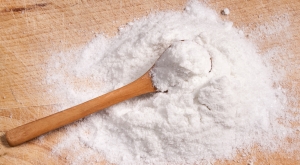
Summary: The Business Software Alliance -- not just the Gates Foundation -- is trying to help a private company (which Gates invests in) own all self-replicating seeds
Microsoft's co-founder, a strong proponent of patent monopolies on life and a prominent Monsanto investor/lobbyist, must be keeping his eyes on particular news this month. The USPTO may soon stop patenting life, depending on what the SCOTUS decides. As one article put it, this is "A Farmer's Crusade Against Monsanto Could Determine The Future Of Patents". Here is another article, "Who Can Own Life? Farmer vs. Monsanto Before US High Court".
The SCOTUS still corrupted by corporate interests, so on
the face of it Monsanto will get its way. From AP:
The Supreme Court appeared likely Tuesday to side with Monsanto Co. in its claim that an Indiana farmer violated the company's patents on soybean seeds that are resistant to its weed-killer.
None of the justices in arguments at the high court seemed ready to endorse farmer Vernon Hugh Bowman's argument that cheap soybeans he bought from a grain elevator are not covered by the Monsanto patents, even though most of them also were genetically modified to resist the company's Roundup herbicide.
Here is what
the New York Times published:
The question in the case, Bowman v. Monsanto Company, No. 11-796, was whether patent rights to seeds and other things that can replicate themselves extend beyond the first generation. The justices appeared alert to the consequences of their eventual ruling not only for Monsanto’s very lucrative soybean patents but also for modern agriculture generally and for areas as varied as vaccines, cell lines and software.
"Can patents on crops and seeds live on through the generations? Seems likely,"
writes Joe Mullin, an excellent writer on the subject of patents (trolls in particular).
Groklaw calls it a matter of "Self-Replicating Patented Seeds" in Pamela Jones' analysis and
Slashdot's analysis says: 'Reader 9gezegen adds that Monsanto is getting support, oddly, from parts of the software industry. From the NY Times: "BSA/The Software Alliance, which represents companies like Apple and Microsoft, said in a brief that a decision against Monsanto might 'facilitate software piracy on a broad scale' because software can be easily replicated. But it also said that a decision that goes too far the other way could make nuisance software patent infringement lawsuits too easy to file."'
The
BSA is right now involved in other cases where Microsoft has a stake, but we'll leave that to the next post. As we showed before, many former workers of William Gates Sr. are now workers of the BSA, so it's all rather incestuous. What they have in common is that they seek a tax on the Commmons, one in software and another in agriculture.
⬆

